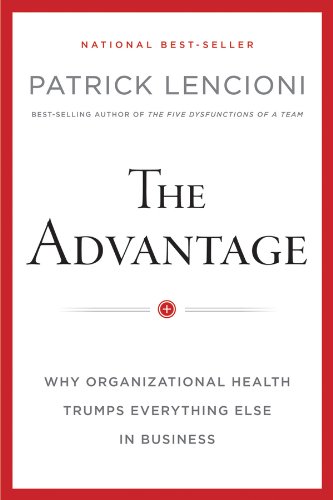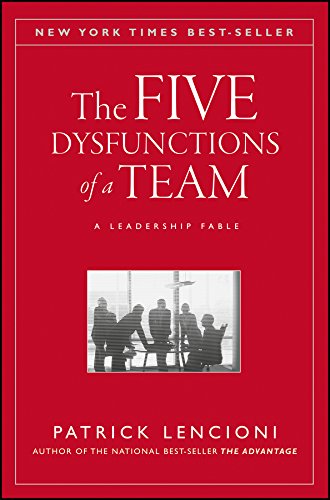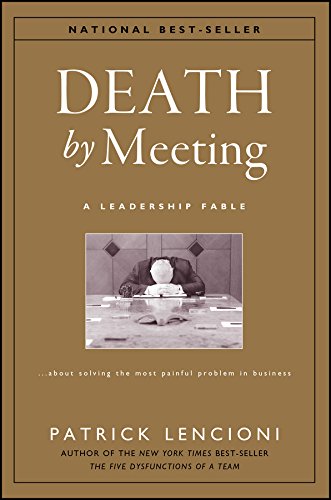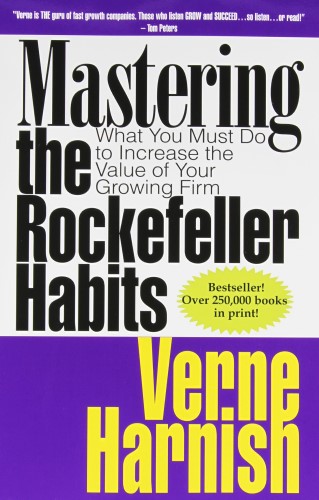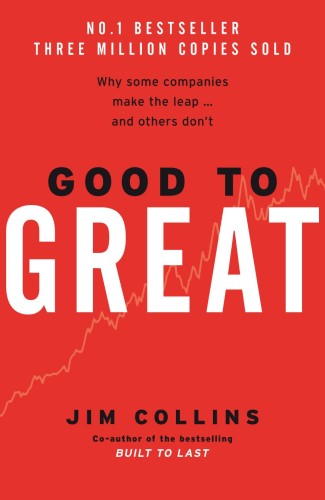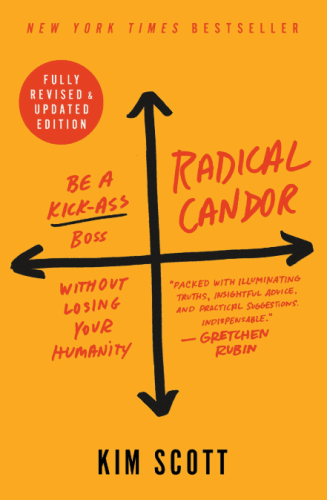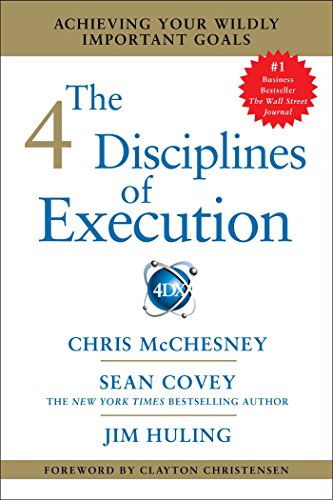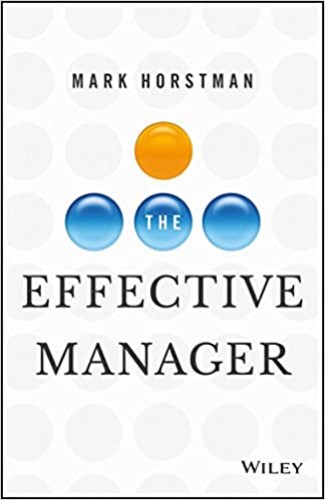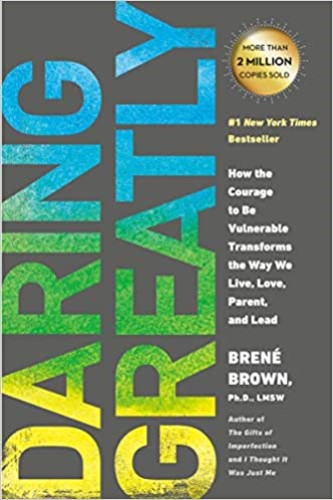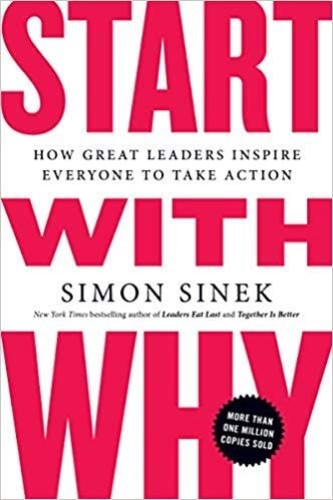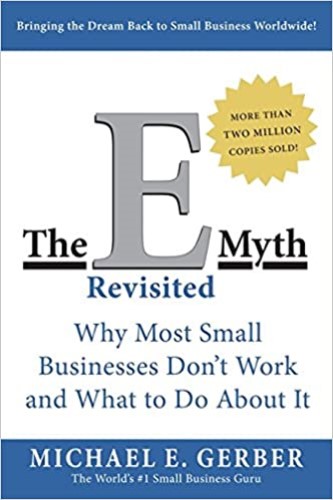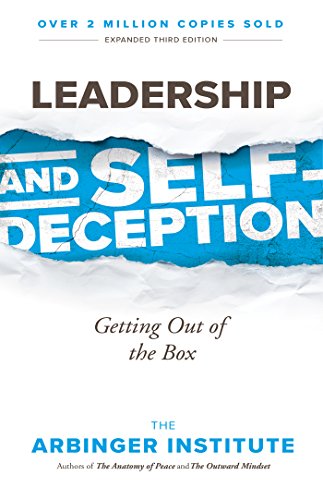We are constantly on the lookout for new ideas and approaches to serve you better. We stay on the cutting edge of the management industry by reading, a lot. Here is a list of some of our favorite books.
The Advantage: Why Organizational Health Trumps Everything Else in Business – Patrick Lencioni
Synopsis: In this book, Lencioni makes an overwhelming case that organizational health will surpass all other disciplines in business as the greatest opportunity for improvement and competitive advantage. Drawing on his extensive consulting experience and reaffirming many of the themes cultivated in his other best-selling books, Pat reveals the four actionable steps to achieving long-term, sustainable success.
Why we like it: Lencioni lays out four essential areas to focus on in order to improve your organization’s health.
The Five Dysfunctions of a Team – Patrick Lencioni
Synopsis: The Five Dysfunctions of a Team has become the world’s most definitive source on practical information for building teams. The book outlines the root causes of politics and dysfunction on the teams where you work and the keys to overcoming them. Counter to conventional wisdom, the causes of dysfunction are both identifiable and curable. However, they don’t die easily. Making a team functional and cohesive requires levels of courage and discipline that many groups cannot seem to muster.
Why we like it: Five Dysfunctions lays out the main issues that hold teams back. By focusing on improving in each of these five areas, you can build a high performing team.
Death by Meeting – Patrick Lencioni
Synopsis: Death by Meeting focuses on a cure for the most painful yet underestimated problem of modern business: bad meetings. And what he suggests is both simple and revolutionary. Pat provides a framework for his groundbreaking model and makes it applicable to the real world. Death by Meeting is nothing short of a blueprint for leaders who want to eliminate waste and frustration among their teams and create environments of engagement and passion.
Why we like it: This book lays out a simple framework for how to better structure your meetings so that you can get more done.
Mastering the Rockefeller Habits: What You Must Do to Increase the Value of your Growing Firm – Verne Harnish
Synopsis: What are the underlying handful of fundamentals that haven’t changed for over a hundred years? From Harnish’s famous One-Page Strategic Plan to his concise outline of eight practical actions you can take to strengthen your culture, this book is a compilation of best practices adapted from some of the best-run firms on the planet. Included is an instructive chapter co-authored by Rich Russakoff, revealing winning tactics to get banks to finance your business. Lastly, there are case studies demonstrating the validity of Harnish’s practical approaches.
Why we like it: Verne highlights a few fundamental habits that every leader must focus on to build a truly great company.
Good to Great: Why Some Companies Make the Leap and Others Don’t – Jim Collins
Synopsis: Over five years, Jim Collins and his team analyzed the histories of twenty-eight different “great” companies. After sifting through mountains of data and thousands of pages of interviews, Collins and his crew discovered the key determinants of greatness — why some companies make the leap and others don’t. The findings of the Good to Great study will surprise many readers and shed light on virtually every area of management strategy and practice.
Why we like it: Collins’ research identified 4 different concepts that set these great companies apart and he outlines them in great detail in the book. They are simple to understand, but like most things, harder to implement.
Radical Candor: Be a Kick-Ass Boss Without Losing Your Humanity – Kim Scott
Synopsis: You don’t have to choose between being a pushover and a jerk. Using Radical Candor―avoiding the perils of Obnoxious Aggression, Manipulative Insincerity, and Ruinous Empathy―you can be kind and clear at the same time.
Kim Scott was a highly successful leader at Google before decamping to Apple, where she developed and taught a management class. Since the original publication of Radical Candor in 2017, Scott has earned international fame with her vital approach to effective leadership and co-founded the Radical Candor executive education company, which helps companies put the book’s philosophy into practice.
Radical Candor is about caring personally and challenging directly, about soliciting criticism to improve your leadership and also providing guidance that helps others grow. It focuses on praise but doesn’t shy away from criticism―to help you love your work and the people you work with.
Why we like it: Kim Scott provides a great framework for how to effectively give feedback that is effective and productive.
The 4 Disciplines of Execution: Achieving Your Wildly Important Goals – Chris McChesney, Sean Covey, Jim Huling
Synopsis: Do you remember the last major initiative you watched die in your organization? Did it go down with a loud crash? Or was it slowly and quietly suffocated by other competing priorities? By the time it finally disappeared, it’s likely no one even noticed. What happened?
Often, the answer is that the “whirlwind” of urgent activity required to keep things running day-to-day devoured all the time and energy you needed to invest in executing your strategy for tomorrow. The 4 Disciplines of Execution can change that forever.
The 4 Disciplines of Execution (4DX) is a simple, repeatable, and proven formula for executing your most important strategic priorities in the midst of the whirlwind. By following the 4 Disciplines—Focus on the Wildly Important; Act on Lead Measures; Keep a Compelling Scoreboard; Create a Cadence of Accountability—leaders can produce breakthrough results, even when executing the strategy requires a significant change in behavior from their teams.
Why we like it: 4DX is a framework for how to get stuff done. Plain and simple.
The Effective Manager – Mark Horstman
Synopsis: The Effective Manager is a hands-on practical guide to great management at every level. Written by the man behind Manager Tools, the world’s number-one business podcast, this book distills the author’s 25 years of management training expertise into clear, actionable steps to start taking today. First, you’ll identify what “effective management” actually looks like: can you get the job done at a high level? Do you attract and retain top talent without burning them out? Then you’ll dig into the four critical behaviors that make a manager great and learn how to adjust your own behavior to be the leader your team needs. You’ll learn the four major tools that should be a part of every manager’s repertoire, how to use them, and even how to introduce them to the team in a productive, non-disruptive way.
Why we like it: Horstman lays out 4 critical behaviors that each manager must engage in in order to retain and get results from their people. He then dives deep into each behavior to help you become a more effective manager.
Daring Greatly: How the Courage to Be Vulnerable Transforms the Way We Live, Love, Parent, and Lead – Brené Brown
Synopsis: Every day we experience the uncertainty, risks, and emotional exposure that define what it means to be vulnerable or to dare greatly. Based on twelve years of pioneering research, Brené Brown PhD, LMSW, dispels the cultural myth that vulnerability is weakness and argues that it is, in truth, our most accurate measure of courage.
Brown explains how vulnerability is both the core of difficult emotions like fear, grief, and disappointment, and the birthplace of love, belonging, joy, empathy, innovation, and creativity. She writes: “When we shut ourselves off from vulnerability, we distance ourselves from the experiences that bring purpose and meaning to our lives.”
Daring Greatly is not about winning or losing. It’s about courage. In a world where “never enough” dominates and feeling afraid has become second nature, vulnerability is subversive. Uncomfortable. It’s even a little dangerous at times. And, without question, putting ourselves out there means there’s a far greater risk of getting criticized or feeling hurt. But when we step back and examine our lives, we will find that nothing is as uncomfortable, dangerous, and hurtful as standing on the outside of our lives looking in and wondering what it would be like if we had the courage to step into the arena—whether it’s a new relationship, an important meeting, the creative process, or a difficult family conversation. Daring Greatly is a practice and a powerful new vision for letting ourselves be seen.
Why we like it: This book lays out how you can become a truly authentic leader.
Drive: The Surprising Truth About What Motivates Us – Daniel Pink
Synopsis: Forget everything you thought you knew about how to motivate people–at work, at school, at home. It’s wrong. As Daniel H. Pink explains in his new and paradigm-shattering book, the secret to high performance and satisfaction in today’s world is the deeply human need to direct our own lives, to learn and create new things, and to do better by ourselves and our world.
Drawing on four decades of scientific research on human motivation, Pink exposes the mismatch between what science knows and what business does – and how that affects every aspect of our lives. He demonstrates that while the old-fashioned carrot-and-stick approach worked successfully in the 20th century, it’s precisely the wrong way to motivate people for today’s challenges. In Drive, he reveals the three elements of true motivation:
- Autonomy – the desire to direct our own lives
- Mastery – the urge to get better and better at something that matters
- Purpose- the yearning to do what we do in the service of something larger than ourselves
Why we like it: Pink gives leaders a better insight into how to engage and motivate employees.
Start With Why: How Great Leaders Inspire Everyone to Take Action – Simon Sinek
Synopsis: Sinek starts with a fundamental question: Why are some people and organizations more innovative, more influential, and more profitable than others? Why do some command greater loyalty from customers and employees alike? Even among the successful, why are so few able to repeat their success over and over?
People like Martin Luther King Jr., Steve Jobs, and the Wright Brothers had little in common, but they all started with WHY. They realized that people won’t truly buy into a product, service, movement, or idea until they understand the WHY behind it.
START WITH WHY shows that the leaders who’ve had the greatest influence in the world all think, act, and communicate the same way — and it’s the opposite of what everyone else does. Sinek calls this powerful idea The Golden Circle, and it provides a framework upon which organizations can be built, movements can be led, and people can be inspired. And it all starts with WHY.
Why we like it: Sinek’s concept helps companies connect with the real reason they’re in business, their true passion. Which in turn makes everything else easier.
The E-Myth Revisited: Why Most Small Businesses Don’t Work and What to Do About It – Michael Gerber
Synopsis: E-Myth \ ‘e-,’mith\ n 1: the entrepreneurial myth: the myth that most people who start small businesses are entrepreneurs 2: the fatal assumption that an individual who understands the technical work of a business can successfully run a business that does that technical work
An instant classic, this bestseller dispels the myths about starting your own business. Small business consultant and author Michael E. Gerber, with sharp insight gained from years of experience, points out how common assumptions, expectations, and even technical expertise can get in the way of running a successful business.
Gerber walks you through the steps in the life of a business—from entrepreneurial infancy through adolescent growing pains to the mature entrepreneurial perspective: the guiding light of all businesses that succeed—and shows how to apply the lessons of franchising to any business, whether or not it is a franchise. Most importantly, Gerber draws the vital, often overlooked distinction between working on your business and working in your business.
The E-Myth Revisited will help you grow your business in a productive, assured way.
Why we like it: This is the book that started it all. Brad read this while running a radio station with 40 some employees and completely changed his approach to managing.
Leadership and Self-Deception: Getting Out of the Box – The Arbinger Institute
Synopsis: Since its original publication in 2000, Leadership and Self-Deception has become an international word-of-mouth phenomenon. Rather than tapering off, it sells more copies every year. The book’s central insight–that the key to leadership lies not in what we do but in who we are–has proven to have powerful implications not only for organizational leadership but in readers’ personal lives as well.
Leadership and Self-Deception uses an entertaining story everyone can relate to about a man facing challenges at work and at home to expose the fascinating ways that we blind ourselves to our true motivations and unwittingly sabotage the effectiveness of our own efforts to achieve happiness and increase happiness. We trap ourselves in a “box” of endless self-justification. Most importantly, the book shows us the way out. Readers will discover what millions already have learned–how to consistently tap into and act on their innate sense of what’s right, dramatically improving all of their relationships.
Why we like it: “Getting out of the box” is a mindset shift that changes your approach to every relationship in your life.
